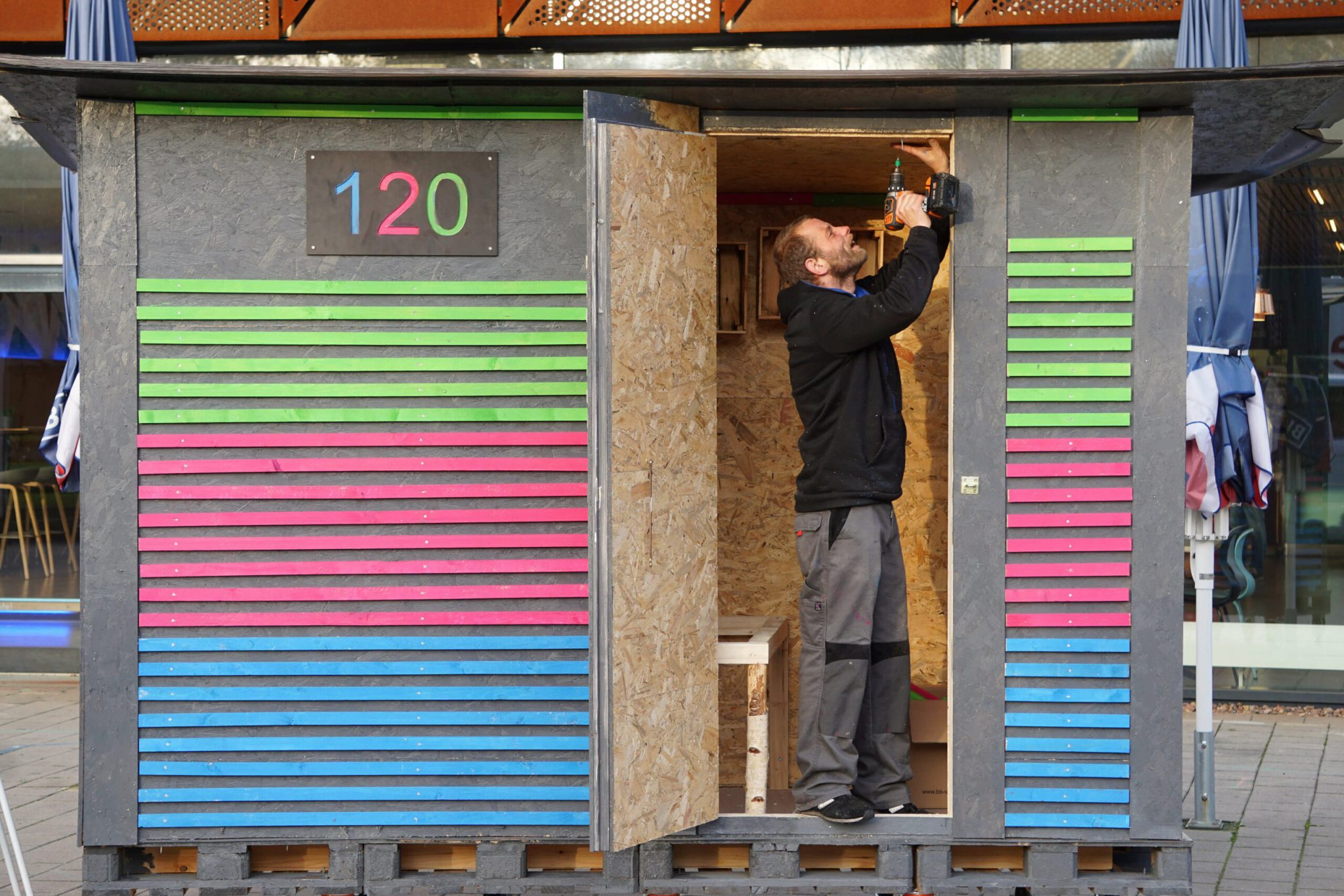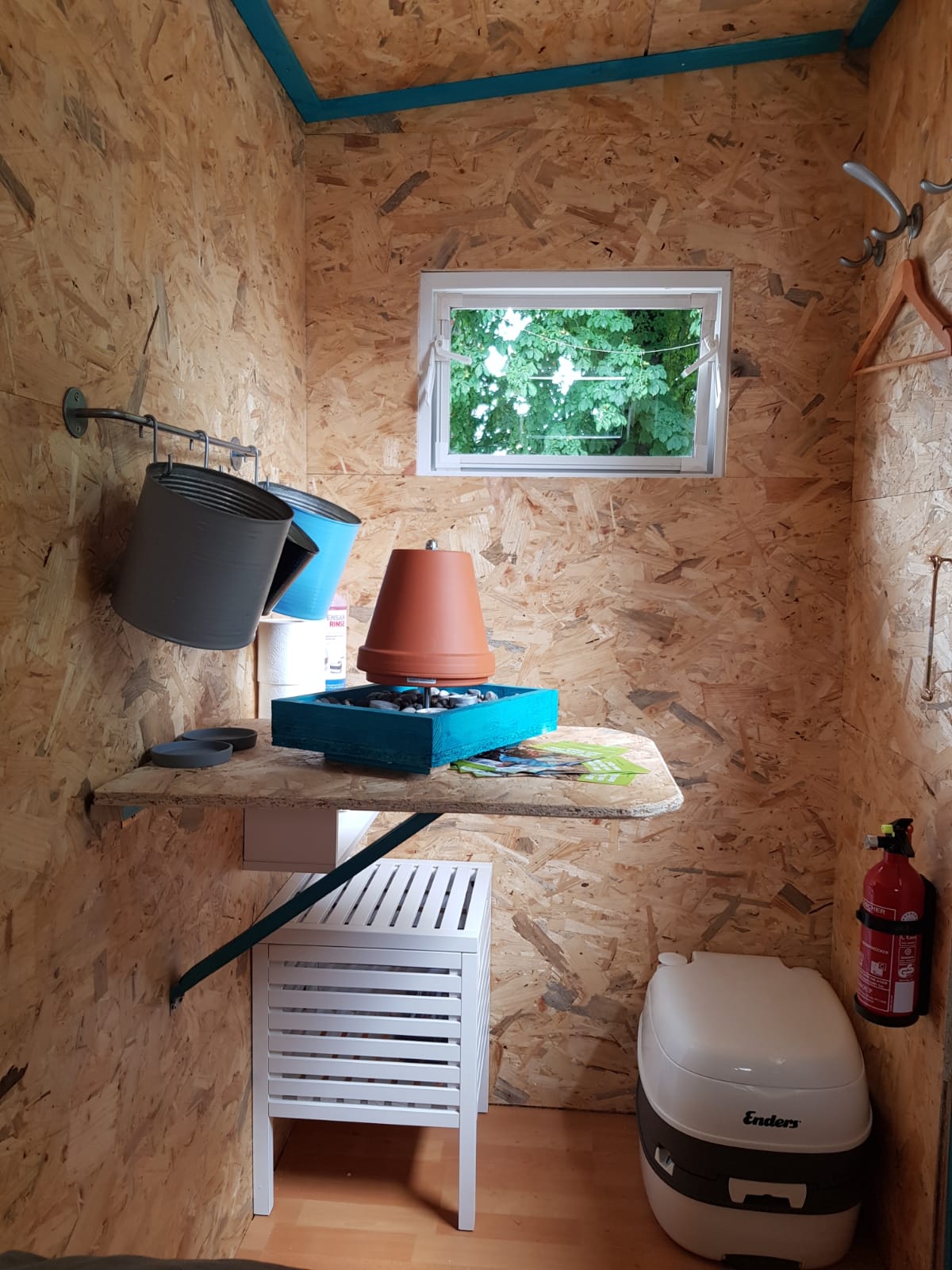The association Little Homes e. V. builds tiny mobile houses and gives them to homeless people. To date, it has built nearly 248 of these shelters. In the meantime, 148 former residents have found a real home again. For them, the gift was a turning point. The small houses give them back security, peace and hope. Critics see it only as a temporary solution and worry about minimum standards.
There is not much space. The 3.5 m² of living space is just enough for a bed, a shelf and a small kitchenette. And yet Uwe S. is happy, because for him, it means security, peace and new hope. For 15 years he was homeless and slept on the streets of Berlin. Then Sven Lüdecke gave him a “Little Home”. He lived in it for two years. In the meantime, Uwe has a flat with electricity and running water again and is standing on his own two feet. The “Little Home” was a turning point.
“Little Homes”: Small houses for homeless people
Sven Lüdecke is the founder of the association “Little Homes e. V.“. Since the end of 2016, he and a team of constantly changing volunteers have been building small houses and giving them to homeless people. Nuremberg, Cologne, Berlin: There are already 248 of these small shelters across Germany. For many, they are a stepping stone back into society: 148 former residents have now found a proper flat.
The houses are simply built: Four walls made of pressboard, a lockable door and a small window. They also have a mattress, a camping toilet, a fire extinguisher and a first aid kit. There is no electricity, no running water and no heating – only insulation made of Styrofoam. This protects against extreme cold. The residents usually provide their own water, for example, from public toilets or drinking water points. A “Little Home” costs around 1,000 euros.
One important detail is that the houses are mobile. They are on wheels. If this were not the case, the association would need a building permit for each Little Home.
Most of the houses are located on private parking lots, but the association cooperates with cities, districts and municipalities. For example, the Berlin district of Kreuzberg provides 40 parking spaces.

Criticism: The “Little Homes” do not meet the minimum standard of accommodation
Lüdecke’s project is also met with opposition. Critics suggest that minimum standards of housing are neglected. The tiny living space is inhumane and not a long-term solution.
Werena Rosenke of the association “Bundesarbeitsgemeinschaft Wohnungslosenhilfe” also takes a critical view of the project. She told Deutschlandfunk that “Little Homes” are not safe. They are often located in remote places. This is dangerous, especially for women. Nevertheless, she thinks it is a good idea to give homeless people some security and get them off the streets for a short time. The goal should be a real flat with a social worker to look after them.
Tiny houses for homeless people: No solution – but a temporary fix
Lüdecke sees it that way, too. He also does not see his project as a solution to the problem of homelessness. That is the task of politicians. The “Little Homes” are only a temporary solution, he says:
“We are not the solution to the problem of homelessness, but a solution before the solution,” says Sven Lüdecke, Little Homes founder (interview).
There are now regional offshoots of the association in many cities. The simple construction of the Little Homes makes it possible. In the beginning, it was just a matter of building a reasonably safe shelter for homeless people. In the meantime, the association also helps with visits to the authorities, with applications for social benefits or with the search for a job. For this purpose, the association hires social workers or works together with them.

Risks: Municipalities neglect their legal duty to help homeless people
In Germany, municipalities are legally obligated to help homeless people. They must provide humane housing for those affected. Rosenke emphasizes that this is a unique selling point that must not be jeopardized under any circumstances.
As good as the idea of “Little Homes” is, it could lead to municipalities neglecting their duty. After all, people are no longer homeless.
This concern is not entirely unfounded. You can see this, for example, in the example of the food banks. Food banks give donated food to people with low incomes. The problem is that the state relies too much on the aid and remains inactive itself. The symptoms of poverty are alleviated, but the causes remain. Inflation, poverty in old age and precarious working conditions in the low-wage sector are not being addressed, according to the fears of critics.
Homelessness on the rise in the EU, in Germany and also in Austria
According to a report by the German government, there are about 263,000 homeless people in Germany. According to Amnesty International, there are just under 20,000 in Austria, and more than 700,000 people in the European Union.
However, the number of unreported cases is likely to be much higher, because many of those affected are not even recorded by the system. They are invisible because they are not registered anywhere, have no social insurance or are staying with friends and acquaintances.
